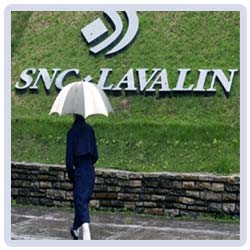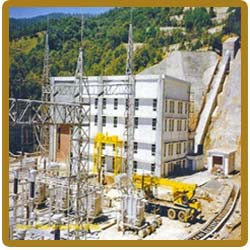HISTORY OF THE SCANDAL
This is a financial scandal involving the Indian Government and the Canadian Company SNC Lavalin. This was a formal business between the Canadian Company SNC Lavalin with the Indian government reporting a net loss of 3745.0 million to the exchequer. This business dealing was about the renovation and upgrading work of the hydro electric power stations at Pallivasal (37.5 mW), Sengulam (48 mW) and Panniar (30 mW). This project was more popularly referred to as the PSP project installed between 1940 and 1964 at Idukki district in Kerala state of India. SNC Lavalin scandal involved politically powerful people who were prosecuted in the case who were the former minister of Indian National Congress G. Karthikeyan and Pinarayi Vijayan from the Marxist Community Party of India who took the pride of being the first member of the Politburo committee. However the Central Bureau of Investigation later on 5 November 2013 in its special court of verdict declared that Pinarayi Vijayan along with 6 other accused were released stating that no legal charge sheets can be filed against them.
PROPOSAL WAS PUT FORWARD BY THE KERALA STATE ELECTRICITY BOARD (KSEB)
During the year 2002 a proposal was put forward by the Kerala State Electricity Board (KSEB) to the Central Electricity Authority (CEA) of India on revamping and modernizing the three hydro-electric power projects at Pallivasal, Sengulam and Panniar. But however this proposal by the Kerala State Electricity Board (KSEB) was not taken into consideration by the Central Electricity Authority (CEA) of India since they noticed that the already existing projects were in a good condition and so they recommended for a capacity up gradation of the generators in these three power projects. The State Electricity Board of Kerala was not happy with this and so they overlooked the recommendation and went ahead with their idea for redeveloping these projects. So further talks and negotiations on this idea of revamping these projects took place with the Canadian company SNC-Lavalin, which for nearly more than a decade was working with the Kerala State Electricity Board. In fact the Canadian Company SNC-Lavalin was involved right from the times of the rule of the United Democratic Front government in Kerala which was headed by the then Minister for Power, C.V. Padmarajan. A memorandum of Understanding was signed on 10 August, 1995 between the Kerala State Electricity Board (KSEB) and the Canadian company SNC-Lavalin during the tenure of G. Karthikeyan of the Congress Party as the Power Minister.
THE MEMORANDUM OF UNDERSTANDING
It was stated that under the resources of the Memorandum of understanding that the funds for the revamping work has to be organized by SNC Lavalin from the Export Development Canada (EDC), Canada, and the Canadian International Development Agency (CIDA). But later the Central Bureau of Investigation in its probe had found that G. Karthikeyan also wanted a favour or advantage granted in return from the Canadian government for the setting up of a hospital for granting a project for renovation and modernization of Pallivasal, Shengulam and Panniyar Hydro electric stations in Kerala, after the revelation of a letter by G Karthikeyan to the then vice-president of Lavalin business operations, Klaus Triendl, who is also an accused in the SNC Lavalin scandal. The Kerala State Electricity Board performed viability and practicality test of the proposed project with the help of a retired Chief Engineer of the KSEB who later became a consultant to SNC-Lavalin. According to the Tata electric Co, the cost of 1 Mega Watt power during the period of 1992-1994 was about 1 crore. When the cost of power was at that rate the then Minister for electricity Vijayan marked by a legitimate reason of awarding Rs 374 cores for a 100MW, project without tender and assuring that Lavalin will provide a grant of Rs 100 cores for Malabar cancer institute. There are lots of evidences available for this from different Media and channels. So if we calculate this now then it shows that Kerala has lost Rs 5000 cores.
OBJECTION FROM VARIOUS QUARTERS REGARDING THE SCORPENE SUBMARINE SCAM
Similarly there were lots of objection from various quarters regarding the Scorpene submarine scam deal. In the year 2002 there were lot of questions put forth by N. Vittal, the Chief Vigilance Commissioner regarding the deal stating strong, that how can it be a single tender deal without a competitive behest order. However the investigation on the Scorpene submarine deal was not really working the right way but instead the push was very slow. A petition on Public Interest Litigation was filed in the Delhi High Court in 2007 by Prashant Bhushan who is in charge of the central Public Interest Litigation to further kickbacks in the Scorpene submarine deal. In fact Thales proved to be wrong to the charges, with its country director in India, Francois Dupont, saying, "The e-mails are forgeries and we have sued the news magazine for this." Once the preliminary investigations were over in 2008, the Central Bureau of Investigation told the Delhi High Court that there was no evidence of payment of kickbacks in the Rs 14.35 billion deal.REPORT BY THE CAG
After the feasibility report was submitted by the Consultants further discussions on this project was carried and finally the Kerala State Electricity Board under the leadership of the then Power Minister, Karthikeyan signed the contract with SNC-Lavalin. The agreement of the contract was that the SNC-Lavalin should provide support to the Kerala State Electricity Board in the technical services for management, engineering, procurement and construction supervision on 24 February, 1996 and to ensure completion of the projects within three years. The agreement also included the rates of the various equipments which have to be acquired by paying money as part of the project. But however the agreement on consultancy were converted into fixed price contracts for the supply of machinery and technical services as part of the renovation at a cost of 67.94 million Canadian dollars (Rs 1690.3 million).Later when the Left Democratic Front Party won majority in the legislative assembly in 1996 the final follow up of the agreement with SNC-Lavalin on the modernization of the Pallivasal, Sengulam and Panniar project was signed by Pinarayi Vijayan.CHRONOLOGY OF EVENTS IN THE SCORPENE SUBMARINE DEAL SCAM
The provisions provided in the Memorandum of Understanding signed by the ministers of United Democratic Front government was in such a way that even if the Left Democratic Front Kerala led government wished to pull back from the project they would have not been able for the clauses in the agreement would have not permitted this. Once the final contract was signed with the SNC Lavalin, the Kerala State Electricity Board (KSEB) assigned a responsibility to the National Hydroelectric Power Corporation Limited (NHEPCL) of studying and justifying the prices quoted by SNC Lavalin. The NHEPCL did a thorough study on the rates quoted in view of the grant to the proposed Malabar Cancer Centre (MCC), the purchase of Canadian equipment and accessories could be considered with approval. However the probing of the Comptroller and Auditor General of India revealed the facts that SNC Lavalin was not actual or original equipment manufacturer but they acted only as a consultant intermediary. According to the reports given by CAG the equipments were provided by other firms at a much higher cost leading to excess expenditure.
COMPTROLLER AND AUDITOR GENERAL

MEMORANDUM OF UNDERSTANDING WAS NOT REVIVED AT THE RIGHT TIME

Disclaimer:
This web page explains the scams that occurred in India.
The information are collected from the media reports.
www.indianmirror.com or it owners do not take any responsibility
for the authenticity of the contents.
Since some cases are in the court of law, we do not endorse any
cases or do not conclude on the same.If you need any changes to be done on the above information, kindly contact us with valid proof. However sincere attempt is being made to create awareness in the society against this evil and to prepare the younger generation for a corruption free India. |


